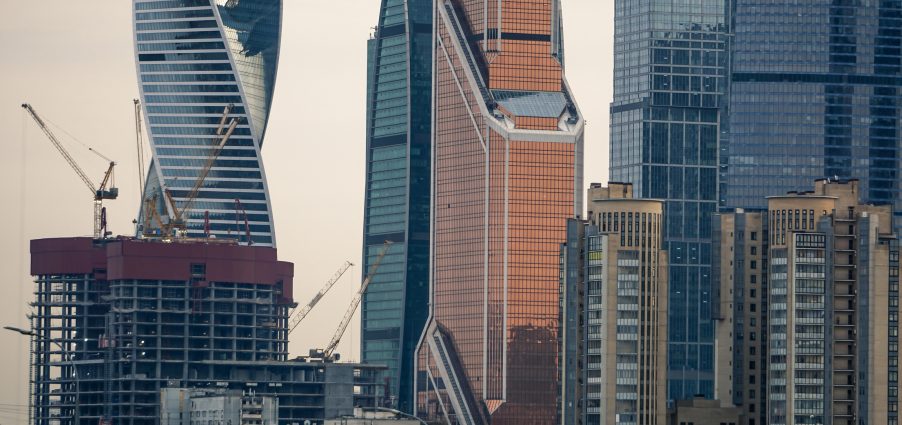 Created in 1994, the West African Economic and Monetary Union is the Economic association of eight member States: Benin, Burkina Faso, Ivory Coast, Guinea-Bisssau, Mali, Niger, Senegal and Togo. These eight states comprising 133.8 million inhabitants over a surface area of 3.5 million km2 are united through a shared currency, the CFA Franc. The growth rate of the area is 6.1% of GDP in 2021 with an inflation rate of 6.1%. The five fundamental objectives fixed in Article 4 of the Treaty are as follows: reinforce economic and financial competitiveness of the member states; ensure the convergence of the economic performance of Member States, create a common market between Member States based on the free circulation of people, goods and services, implement national sector policies, harmonise, where relevant, the legislation of member States to ensure fluid transactions particularly in terms of tax. In 2007 the executive commission created a strategic program, which became the Centre of Strategic Programming and Competitive Watch in 2015 and then in 2017 was renamed the Strategy and Evaluation Department. Key activities include carrying out studies and improving knowledge about the internal and external environments in order to help decision making.
Created in 1994, the West African Economic and Monetary Union is the Economic association of eight member States: Benin, Burkina Faso, Ivory Coast, Guinea-Bisssau, Mali, Niger, Senegal and Togo. These eight states comprising 133.8 million inhabitants over a surface area of 3.5 million km2 are united through a shared currency, the CFA Franc. The growth rate of the area is 6.1% of GDP in 2021 with an inflation rate of 6.1%. The five fundamental objectives fixed in Article 4 of the Treaty are as follows: reinforce economic and financial competitiveness of the member states; ensure the convergence of the economic performance of Member States, create a common market between Member States based on the free circulation of people, goods and services, implement national sector policies, harmonise, where relevant, the legislation of member States to ensure fluid transactions particularly in terms of tax. In 2007 the executive commission created a strategic program, which became the Centre of Strategic Programming and Competitive Watch in 2015 and then in 2017 was renamed the Strategy and Evaluation Department. Key activities include carrying out studies and improving knowledge about the internal and external environments in order to help decision making.
First steps and weaknesses
Before implementing a dedicated competitive intelligence department, certain departments had already implemented some initiatives. "For example the communication department had implemented surveillance of the corporate image around different activities of the West African Economic and Monetary Union within the context of the publication of an information panorama that covered most of the main activities of the union" explains Oulimata LY/FAYE, in charge of competitive intelligence for CSR/UEMOA. The Ebola strategic watch committee of the Human Development Department extended their surveillance to the Covid 19 pandemic. The Agriculture, water and environment department had implemented a strategic watch on the topic of cotton using a regional portal since 2014. The DSE, which is linked to the Presidency, covers several different themes such as peace and security, economic fund raising, IT, infrastructures etc. Each initiative helped us to understand the weaknesses of not having a dedicated team who look after knowledge management, the lack of investment and the wide range of tools used (Google alerts etc).
Solutions offered by the DSE
In order to implement the competitive intelligence service for the Commission the department carried out the following:
- Internal validation of the implémentation strategy of the competitive intelligence project
- On the ground observation to gain inspiration and best practice from other institutions such as those in Quebec: ENAP (School of Public Administration) and MESI (Ministry of Economics, Science and Innovation)
- Renforcement of training and internal competency
- Organisation of seminars and workshops about compétitive intelligence and associated tools
- Implémentation of a CI commitee (5 analysts in the presidency and 15 focal topics in the departments)
Sindup, a human scale partner
In 2018 the Commission signed a partnership with Sindup. The purpose of this partnership is to optimise the collection, analysis and sharing process for competitive intelligence in order to put in place a fully operational project. Today the Commission has 20 analysts, 10 experts curators and 100 readers. The CI team is in charge of setting up the key topics on the platform, creating themed source bundles and create a hierarchy system for monitoring folders, and then analyse the information, create CI newsletters, e-mail alerts and dashboards for readers. "Our newsletter should be concise, clear and precise in order to ensure that there is sufficient added value for the readers". The different sections are validated by the Head of the Strategy, Studies and Prospective Division, Dr DIARRA Souleymane, under the supervision of the director Monsieur COULIBALY Aly D, adds Oulimata LY/FAYE.
Dashboards to introduce the CI approach to teams
With the purpose of acculturation about Compétitive Intelligence and Knowledge Management we have created dedicated CI mornings, during which a dashboard is presented to the Agents of the Commission (more than 100 people), explaining the role of the dashboard and what it can be used for by the readers. Following these events the DSE set up the dashboards for each Department and for the presidency.
Oulimata LY/FAYE
CI Manager CSR / UEMOA
Difficulties encountered
In implementing the "Compétitive Intelligence Network", at the Commission, one of the main difficulties was the lack of response in validating the focal points and the articles in the production processes of the newsletters. In addition to this, we can add the lack of time available to carry out the focus points, allowing the analysts to then produce and share the newsletters with other colleagues in the department. Therefore the administrator of the platform takes care of setting up certain deliverables (email alerts, themed newsletters and CI reports) for distribution
Results achieved
The different CI activities have given the following results
- A link between different focal points allowing better sharing of information
- Time saved in searching for information
- An operational and efficient CI system
- The diffusion of 16 strategic CI reports and 2 sector reports
- Setting up of newsletters and e-mail alerts
- A range of dashboards by department
Next steps
The next steps on the horizon for the DSE in collaboration with the other services, are to begin the following activities:
- The monitoring of risks (risks and opportunities) with the production and sharing of a supplementary edition to the CI report
- Demonstration sessions on the department focal point with each Commissioner with their Cabinet Director in order to introduce and explain Sindup
- A census of the personal information needs of each Commissioner and their Cabinet Director in order to create CI deliverables for top management

